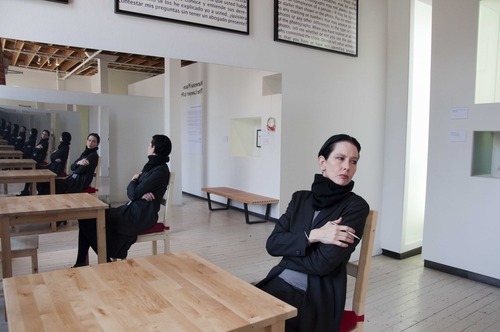
Felix Bernstein in Conversation with Vanessa Place
I first met Vanessa Place a year ago, when I performed alongside her and Cecilia Corrigan at a reading. The grouping couldn’t be odder: Corrigan started the evening out, playing a bubbly femme David Letterman with Place and me as her guests. Then I came on cloaked in black, and perversely sang along to a collection of strange YouTube videos that projected behind me. And finally Place dryly read from The Scum Manifesto, changing the words “woman” to “man.” After the show, I went over to Place, offering an eager compliment for her brilliant, fastidious study of criminal law, The Guilt Project. In response she seemed indifferent, superior, and cold—as sinister as her mythic press photos: Conceptual poetry’s dark woman, Vanessa Place CEO, never smiles in pictures, dresses sleekly in black, and speaks only in Lacanian riddles.
Place is, without a doubt, dark: her magnum opus Statement of Facts is made up of appropriated material from the kind of rape cases for which she serves as a defense attorney. This work was controversial both with critics and sensitive audience members, who walked out during performances. Corrigan must have gotten the same vibes as I did: soon after that night we both published critiques of Place’s work. Many critiques of Place dismiss her instantly, finding her appropriation tactics to be point blank: hostile, sexist, racist, classist, or masculinist. But Corrigan and I were both intrigued by Place as a powerful and complex innovator, whose breadth comes with interesting and generative flaws. Many works that we pass over as morally acceptable and progressive never have us thinking a thing, but Place forces even her sharpest critics to think, and forces all of us to wrestle with our complicity with negative social values. We are too quick, on the left, to think ourselves free from oppressive systems (i.e., capitalism, patriarchy, rape culture, the prison industrial complex, coterie, name dropping, social climbing, media whoring) and Place won’t let us off so easy.
Even as, in my Notes on Post-Conceptual Poetry, I critically spar with many of the proclamations she and Fitterman espouse in Notes on Conceptual Poetry, I do it not merely with that old proverbial “love” or wide-eyed reverence or coterie-building friendliness but, more crucially than any of that, with respect for an ingenious provocative mind. Which is why Place and I decided to take what started as a private Facebook chat into another agora, one which could also prompt another kind of phobia.
—Felix Bernstein
I. “WHAT ARE YOU DOING AFTER THE ORGY?”
FELIX BERNSTEIN: I’ve always had a campy fascination with your presence, though I’ve had many serious critical reservations. However, your rabble-rousing Facebook antics sweetened the cup. When you appropriate self-promotional statuses by poets you no longer implicate merely the lyric subject or the naïve consumer of poetry but you implicate all your “friends.” We are all implicated, (as the community that pretends to transcend community or be non-normative): the point being (as with the logo that runs across your face on one of your memes): “I Am Social Capital.”
VANESSA PLACE: Yes.
FB: And such status appropriations make us all (in the “poetry community”) squirm a bit. Because here we all are, using Facebook as a self-promotional vehicle: and nothing gets more “likes” than a nice promotion.
VP: Yes.
FB: A problem I had with your work when I first encountered it was the repetitions of tropes that had become stale art world clichés that triggered the popular October journal 1980s debates: “is the neo-avant-garde as important as the first avant-garde?” However, aesthetically, your repetitions become eerier over time. You become sort of like Marlene Dietrich: statuesque and unrelenting.
VP: Yes. This is rather fun.
FB: The self-consciously statuesque is the absolute opposite of what I grew up with: a father whose topsy turvy postmodern play would hardly admit that it could congeal into any sort of authoritative persona. And yet it was the withholding of the statuesque, the law, the phallus, which was so torturous. So I find perhaps more than just aesthetic delight watching you live as a statue. I find it psychosexually comforting, because it is seems to be what I was never given: A father who admits to being the father. Of course, this is problematic: any of the feminist critiques of Lacan can be applied to your practice (it continually reinscribes the law and the master in a supposedly generous gesture but in the end becomes a foil for incomprehensible tyrants to dominate without any checks or balances). However, one critique that I have leveled against you that does not stick is that your work is overly proscriptive and dogmatic. When in fact, you of all the conceptual poets, are the least likely to produce a “school of followers.” In fact you make that nearly impossible. You have none of the persuasive sweetness of Kenneth Goldsmith. You seem like a dark alien in the poetry world. And I still think that despite the validity of the claims that there is nothing “punk” or even idiosyncratic about institutional critique, you are the bizarre case in which, somehow, you always seem to stand-alone, as this weird dark alienating enigma that remains even after you are toppled over through critique and thrown out as “trendy role model.” In other words, you are so passé that you should simply vanish. But the more passé you grow the more towering becomes your inferno (the more inches it gains, as you would say).
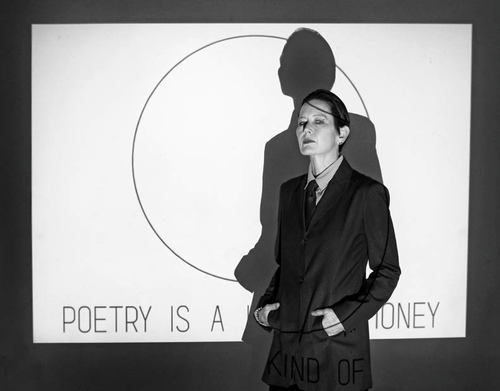
VP: Well, at least I’m consistently lesser and redundant, and certainly appreciate the confirmation of my lack of “persuasive sweetness.” That would be a horror. And it’s doubtless true that our current complaint is against the postmodern rather than the modern. We’ve got no problems with the modern—why should we? After all, who doesn’t secretly adore a grand narrative, especially about ourselves? Otherwise, what would be the point of “liking” anything? And still the thing that remains is what one could term the Real, which is immune to proscription. I am never proscriptive. Critical, yes, but never proscriptive. And so, why are the two of us on Facebook?
FB: To transparently display our climb up the various class ladders? But that was at first. I don’t know why we stay. Maybe still waiting for a sweet aftertaste? There is no withheld enigma on Facebook. Or at least the enigma is deferred and only becomes real when we get real results—a teaching job, a relationship, a promotion. But then that doesn’t feel real either. So what does?
I still conservatively believe enigmatic traces can only be found through intensive critical study, so those who pursue that will be differentiated from the rest, who will be left in the dirt. This obviously can’t be proscribed. I think your work has a proscriptive quality in its didactic amorality. What is not proscriptive or transcribable is your personality and nerve, or what amounts to it. But it’s still slightly different than your persona.
VP: Agree with the latter half; disagree with the first. FB is as real as anything else. That’s its sweetness, and the source of its rot. Like the cheese and I, it stands alone.
FB: Maybe so but don’t you think Facebook begs the question “what are you doing after the orgy?” and don’t you think most people’s answer will be—having a “real” life again. Being returned to stasis. I think you’re right that Facebook does already have the stasis of reality in it and is cathected to enough that it can be called real, and that it is just as real as anything else. But it does mark itself as being a different sort of beast, so that people want something more but there is nothing more. There is no withheld enigma because, as you say, Facebook is as real as anything else. So we are stuck. Unless we have critical awareness. Which I think overrules the importance of whatever extrinsic good you receive from the orgy—a job promotion, a spouse, or even a persona, an aesthetics, a politics. Those things all remain dull so long as there is no functioning critical mechanism. So even more important than Vanessa Place’s dark persona or Felix Bernstein’s campy persona would be the identification of a critical position, which can only be accessed through rigorous thinking.
VP: Perhaps this is where personae can, as ours are now, profitably coincide. Criticality imagines a miner’s headlamp, which presupposes dark and both kinds of camp. As far as the orgy goes, one should always leave with the person who brought one.
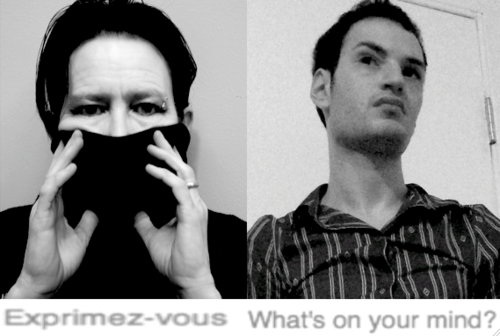
II. GIVING PEOPLE WHAT THEY DON’T KNOW THEY DON’T WANT
FB: I think it takes a lot of work to ascertain your true critical position, since it is not merely in your persona, or in your detournements (which can easily be taught, of course, and Goldsmith’s classes have perfected this, though maybe this is part of your import, though the part that interests me least); but rather the true critical position is akin at times to a blunt hostility, and at times being uncannily passé, both in and out of sync at once. It is probably unteachable.
VP: And should I care? Or could I care less? In other words, why am I to be utilized as a method for instructing others to be—what? This is an interesting question, where art becomes useful only insofar as it can be used to instruct artists, or poets, or whoever else comes to the party, versus having some argument on its own. Perhaps this is the state we are in, and perhaps my particular nihilism is thus a bit inutile. And perhaps this is also part of my function, my insistence on functionlessness. It is a kind of friction, I think, in the midst of frictionlessness.
FB: I think your amorality already serves a didactic function and could be turned into a teaching paradigm á la uncreative writing. But your deeper critical purchase (the stakes and risks involved in your affront to the poetry community) could not translate. And I think that is what is most interesting about you: that you jam up the ability to continue the seamless pedagogical or familial lineages that are supposed to develop from the avant-garde. (It is why your afterward to I’ll Drown My Book appears to be a hoax because how could someone as egotistical as you care about a lineage?)
This is exactly the opposite of what Goldsmith does. You serve rather an elitist function that gives no ground on its own desire, even if that means it can only be loved through being hated. You form no school of thought, except ones caused in aversion. It actually means that you efface your own elitism and your own patriarchal function by making it so transparently visible instead of gratuitously offering a mushy paternal goodness that cannot be fought but only admired. So, in the end, you give us what we want and ask for and expect (in the historical avant-garde) but when we receive it, we are very upset. This might, paradoxically, be the last sort of tangibly sophisticated pedagogical model that can save us and by us, I mean the few who are capable of being saved.
VP: This is very good—I think I might agree. I’ve put it as “giving people what they don’t know they don’t want”—well said, you. And amorality is perfectly correct. I am absolutely disinterested in others. Which is perhaps why the self-promotional poets get so upset; by simply reposting a book announcement, for example, I highlight the attention the writer seeks/wants but like an eclipse, delineating in uncomfortable fashion that core (the marketing of self as such) which they do not want to want, even as (of course) they want it. Which may be why we began on Facebook. It’s a place reeking of/perfumed with want.
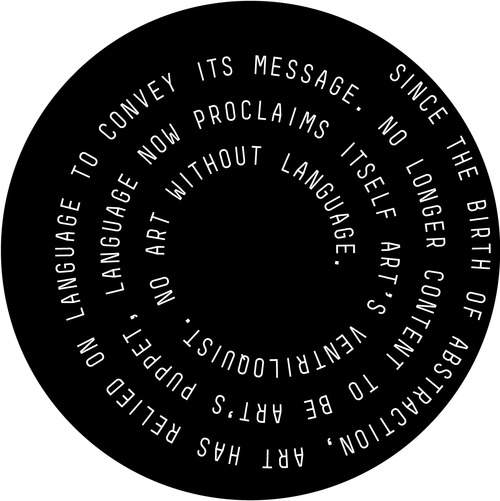
III. “A THING IS A HOLE IN A THING IT IS NOT.”
FB: But isn’t it hard to always get to the scene of the crime first? Don’t you long to play weak and vulnerable and excited rather than Vanessa Place CEO? Always already making clear your own discursive power instead of hiding it with feigned humbleness? My tactic has usually been to torture myself until I reveal that I am a sucker; whereas you torture others. I don’t think there is an ethical difference but I would imagine there is some sort of difference. Anyway my next essays, in particular, move into the scandalous terrain of torturing others. And I think that, while it is exhausting, so is humiliating oneself. But either way, as long as one is exhausted that is a good sign, right? Of course, torture could easily be replaced with tickle here. I don’t think you’ve tortured anyone.
VP: I don’t either, but they do, and that counts for something. Efficiency, if nothing else. Too, isn’t a mirror always a site of selflessness? Or at least ideology?
FB: It seems a lot of poets like to make their own hierarchical competitiveness seem very neutral and cool. I mean the whole coterie thing is meant to be a newly forged kinship that must be kept exempt from “haters” lest they be reminded of the typical nuclear family.
VP: True, and then there’s those who rail against capital and the crass marketing of self, apparently not noticing that we are in a forum precisely devoted to both those things. Then, of course, asking one to like their author page, or putting up their blurb by the Great Poet himself. They mistake me for a judge—I’m not even a penitent.
FB: And when you reposted the self-promotional status about a book announcement, a feminist poet called what you did “cunty.” What did you think of that move?
VP: It is an interesting choice of adjective. She could have just gone with the gender-neutral “asshole” or a more trans move, “dick.” Another poet whose status I appropriated privately accused me of “a dick move.” He was absolutely correct in a structural sense, which is where she got it wrong.
FB: So, upon publishing my “Notes on Post-Conceptual Poetry,” a lot of the people therein critiqued really seemed to enjoy the piece. However, some complaints were issued given the degree to which I stereotyped or clichéd someone’s position. And admittedly, I employ this tactic, since it’s an easy way to illustrate ideological traps. Are you offended by my characterizations of you?
VP: Should I be? Only stupidity offends me. Tactics either work or get stuck. What’s interesting is the suggestion here that these are my choices: to enjoy or be offended, which are precisely the choices enacted on and via FB. To quote: A thing is a hole in a thing it is not. I prefer this thing.
FB: I also found from the responses I got was that what people want (to be historically contextualized, for power hierarchies and its blind spots to be made transparent) is never actually so pleasing when it is really given to them. Here, I think you and me share a desire to give off that Fuck You moment when we can be “giving people what they don’t know they don’t want.”
VP: I might turn this slightly—I’m less interested in the pure Fuck You, and more interested in the Fuck Me that may be experienced as a Fuck You, given the vagaries of self-regard. And the endless temptations of the coterie.
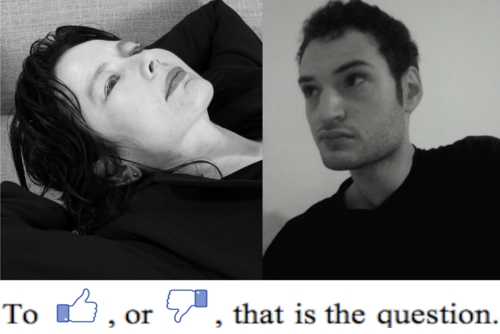
FB: There has recently been a bevy of ahistorical articles coming out attacking avant-garde poetries for being too complex/elitist. These all end by advocating a vanilla progressive poetry that is academic but claims to be free from academic co-optation, that uses the tactics of obscurity difficulty and formal experimentation but claims to be doing this in favor of expression communication and communistic community building.
Such essays, completely avoid what would be two more standard intellectual responses to those issues: one being the Foucauldian response that actually encounters the astounding catastrophes of historical ‘progression’ without merely picking and choosing based on a whimsical desire to set order to your momentary propagandistic fixation. The second being the Lacanian response factors in the astounding catastrophes of the unconscious (the latter being more your cup of tea)…I’m wondering if there is anything that makes it worthy of being read or thought through?
VP: Only insofar as it is an interesting way to approach an aesthetic movement—skip right over its aesthetic merits and only assess based upon some predicted social outcome. And, of course, a duly and dully prescribed social outcome. This kind of thinking would have killed the futurists, and ceded no points to Dada. It’s a dull game, very American. Very Protestant.
FB: And then tie it up with that same old bow—a poetics that is ethically informed and Occupy related and has discernible merit. Like whose work? David Lau’s? Cal Bedient’s?
VP: Like no one’s, which is the wheel that keeps them going. I’m well aware that this is more about the perpetuum mobile of university discourse than any other desire. Remember that the first pratfall, the one occasioned in Eden, was the product of knowing better, which is not the same thing as knowing.
FB: That point brings me to your work, as a whole, because your work involves doing things (FaceBook pranks, vulgar appropriations) that you should “know better” than to do. And I think that brings us together. Because both of us are endlessly skeptical of the poet’s claim to sacred transcendental truth, particularly we are fixated, even obsessed with, the claims made for a purely Marxist Queer Feminist Radical Quotidian poetics that is radically democratic and non-hierarchical. And in the end that skepticism cuts against us, as well. I’ll make a status that “I failed at the Queer Art of Failure” and you’ll make a status that appropriates the language of a poet’s blasé announcement of success. Why do you think we are so irritable? Are we, perhaps, resentful people?
VP: Are we irritable? Or are we, of all people, somehow sensitive? It does seem that we both have a keen sense of smell. And a way of locating the stink.
*
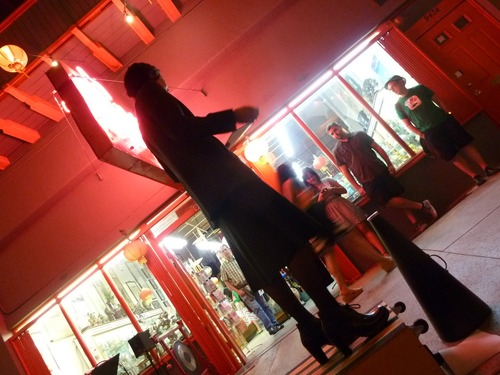
The Boston Review called Vanessa Place “the spokesperson for the new cynical avant-garde,” the Huffington Post characterized her work as “ethically odious,” while philosopher and critic Avital Ronell said she is “a leading voice in contemporary thought.” Vanessa Place was the first poet to perform as part of the Whitney Biennial; a content advisory was posted. Other exhibition work has appeared at MAK Center/Schindler House; Denver Museum of Contemporary Art; the Boulder Museum of Contemporary Art; The Power Plant, Toronto; the Broad Museum, East Lansing; and Cage 83 Gallery, New York. Recent books include Boycott; Statement of Facts; Notes on Conceptualisms, co-authored with Robert Fitterman, and her translation of Guantanamo, by French poet Frank Smith. Place also works as a critic and criminal defense attorney, and is CEO of VanessaPlace Inc., the world’s first poetry corporation.
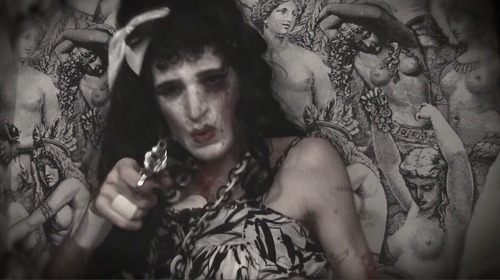
Image Credits:
Vanessa Place, Mirror: Patrick Greaney.
Vanessa Place, Poetry is a kind of money: Lawrence Schwartzwald
Vanessa Place, Mask: Paula Gillen
Vanessa Place, To Like or Not to Like: Molly Corey
Vanessa Place, Soapbox: Harold Abramowitz




